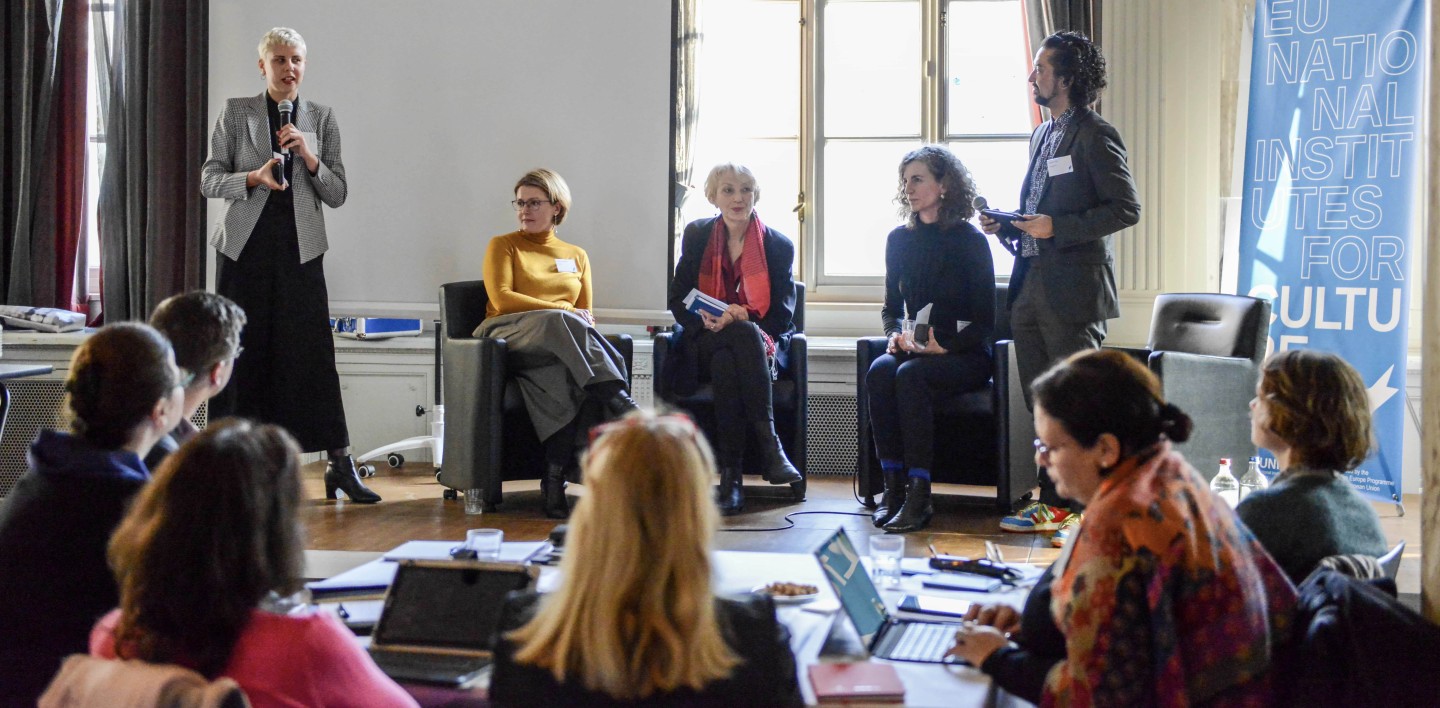
Gitte Zschoch’s term as Director of EUNIC extended for two years
The Board of Directors of EUNIC have unanimously decided in their meeting of 21 September 2020 to extend the incumbent’s term as Director for an additional period of two years, up until August 2023.

Gitte Zschoch is seconded from EUNIC member Goethe-Institut, German’s largest cultural relations organisation. Previous to her role at EUNIC she was the founding director of the Kinshasa branch of the Goethe-Institut and since 2008 has worked in different capacities for the same organisation in Seoul, Tokyo, Johannesburg, and in the Munich main office, where she was Deputy Head of Communications. She holds a master’s degree in Modern Korean Literature from Seoul National University in Seoul, South Korea, and a bachelor’s degree in Comparative Literature from Ludwig-Maximilians-Universität in Munich, Germany.
Roberto Vellano, president of EUNIC, said: “With her strategic vision, Gitte Zschoch has further professionalised the network, focused on its improved communication and visibility, and has boosted our advocacy for EU cultural relations. The Preparatory Action ‘European Spaces of Culture’ was kick-started under her leadership, a project to find new models of doing EU cultural relations. For the future of EUNIC, she is best equipped to continue to strengthen EUNIC as a network with a global reach.”
Gitte Zschoch added: “At EUNIC we value the partnership approach. I am glad I can now continue to engage both with our partners in the EU institutions and beyond to work for a concerted approach to bringing EU cultural relations forward, as well as with our colleagues in our 120 clusters worldwide who are the backbone of making EU cultural relations happen. I am grateful for the trust the Board of Directors have put in me through the extension of my term.”
In the coming months, EUNIC will focus on redefining EU cultural relations in practical terms through the implementation of the Preparatory Action of the European Parliament, ‘European Spaces of Culture’. Further on the agenda are evidence-based concepts for cultural relations in fragile contexts and cultural heritage, fair collaboration with partners on a global scale, and the examination of the impact of Covid-19 and enhanced digitalisation on the work of EUNIC’s members worldwide.
The EUNIC Director is responsible for the daily management of the network, delivering its strategy and heading the office in Brussels, as well as representing the network externally. The EUNIC Director is selected by the Board of Directors after an open call to the network and is seconded by the respective EUNIC member for a time period of three years, extendable for an additional two years. EUNIC compensates that member for the personnel costs incurred.
